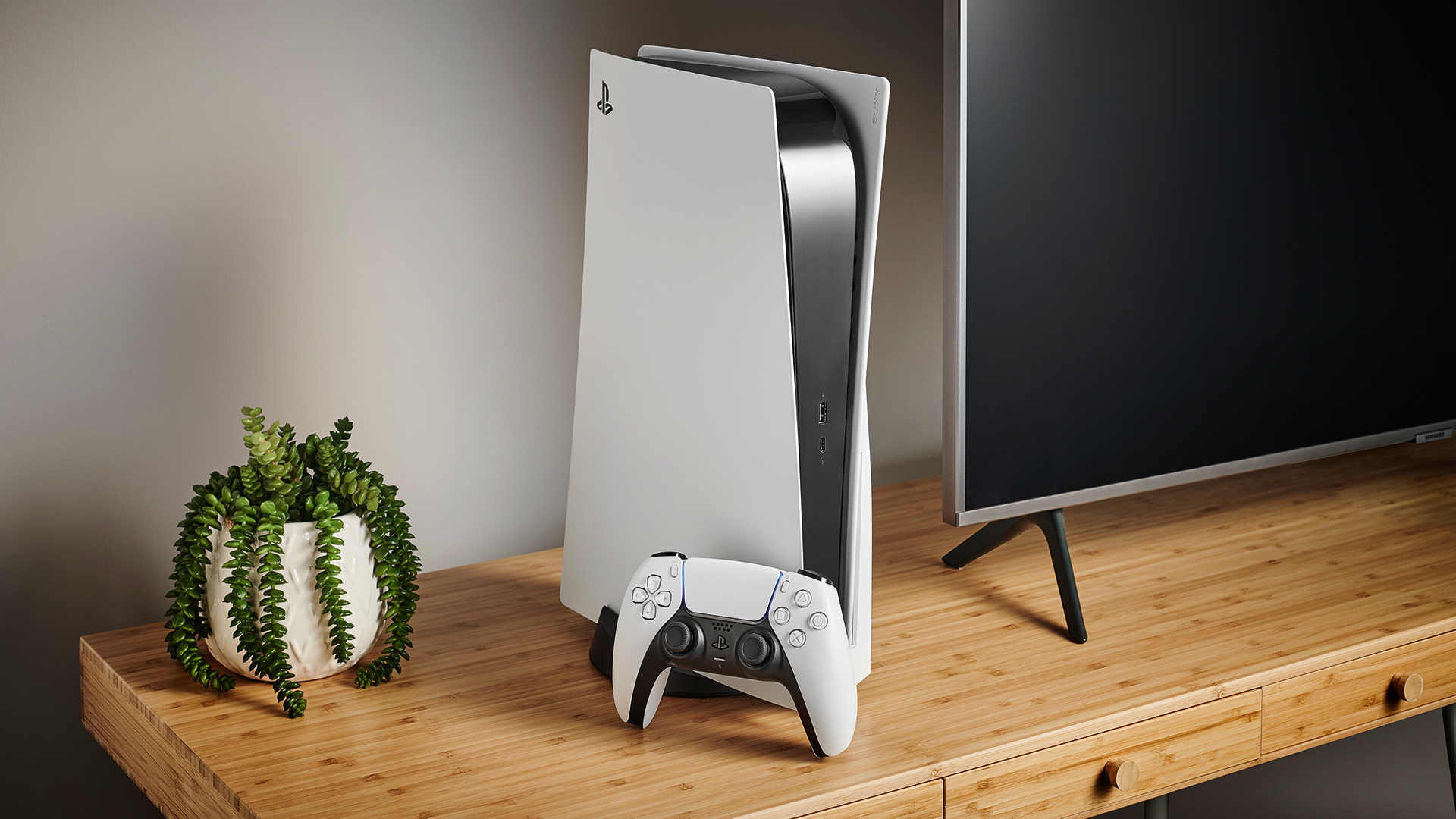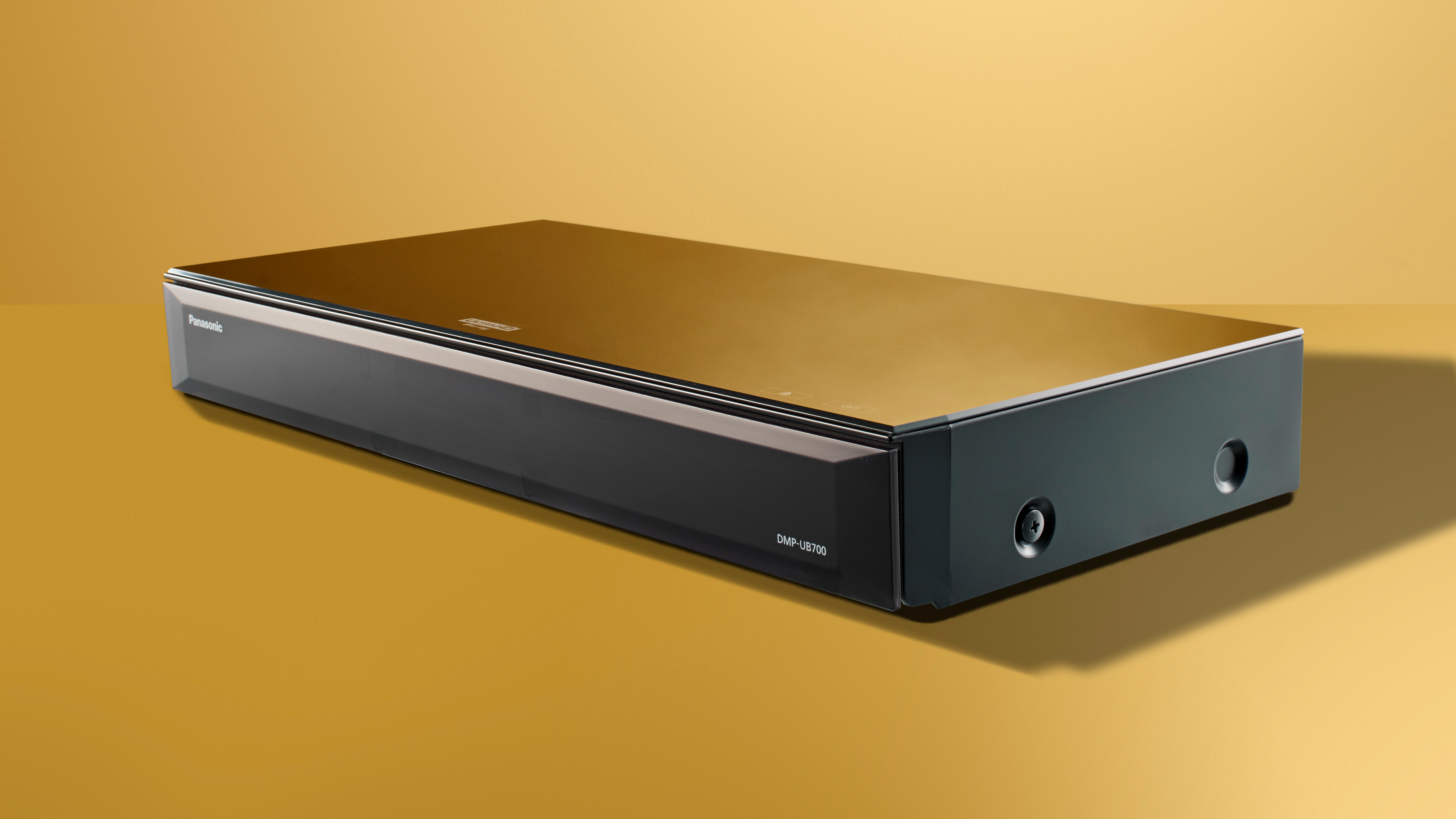
If you’ve got a Sony PlayStation 5 do you really need one of the best 4K Blu-ray players too? If you've got the version of the console with a disc drive, then common sense would seem to suggest you don’t, since it's perfectly capable of playing 4K Blu-rays.
However, there are compelling reasons to own both. What we have here is a classic case of convenience and value versus quality and ease of use. There are significant things that the PlayStation 5 simply cannot do when playing discs, and if you've invested in one of the best TVs, you want to get the most out of it, right?
But still the PS5 can play 4K Blu-rays, and actually it's not bad at the job at all, so in this guide we'll explain exactly what it does well, and where it gets beaten by the power of a dedicated player.
What follows is not a totally fair fight – there are apples in one corner and oranges in the other – but we're allowing both sides to show off their considerable advantages and disadvantages. And when it comes down to it, we're asking both to do the same job.
So here, we'll talk about the PS5's Blu-ray skills, but we'll also compare it to the Panasonic DP-UB9000 Blu-ray player, which actually costs a lot more (about $1,000/£899 to the PS5's $499/£449 – but they're two players we've had a chance to compare through direct use, and it helps in terms of showing you just how good the PS5 is in places.
PS5 as 4K Blu-ray player: specs compared
Let’s cut to the chase: the PlayStation 5 is an average 4K Blu-ray player overall. There’s no support for Dolby Vision HDR, and immersive audio playback is a mess.
The console will give you Dolby Atmos sound from discs, but enabling it is far from intuitive. The PS5’s default audio format is multichannel Linear PCM, which doesn't include all the excellent object-based surround wizardry of Atmos. It can play Dolby Atmos from a Blu-ray but you have to find the right setting to trigger it. Once you do, you can choose to have it passthrough the 'bitstream', which basically means it just gives all the audio data to your TV instead of handling it itself, so if you have a TV with Dolby Atmos support, you'll then get the full effect.
Get daily insight, inspiration and deals in your inbox
Sign up for breaking news, reviews, opinion, top tech deals, and more.
There are actually two bitstream out settings on the console. To access the relevant movie menu you’ll need to be playing your disc before hitting the Options button on the joypad and digging down into Settings. There you’ll find the bitstream out audio setting which will unlock Dolby Atmos.
When it comes to connectivity, the PS5 has a single HDMI out. Some Blu-ray players offer more. The premium Panasonic DP-UB9000 has two HDMIs, with one dedicated purely to audio (useful if you’re feeding a screen and an AV receiver). There’s also optical and coaxial digital audio outputs, stereo analogue phonos and a full 7.1 channel output, plus balanced Neutrik XLR stereo connectors – all perhaps of interest to home theater nerds. (OK, we admit we don’t use them all.)
It’s worth noting that the PS5 has no support for 3D Blu-rays (if you have them in your library).

PS5 as 4K Blu-ray player: image and sound quality
We suspect most users will be happy with the video performance of their PS5s, lack of Dolby Vision support notwithstanding. Images exhibit plenty of detail and color fidelity is impressive. However, compared directly to the Panasonic DP-UB9000, it just doesn’t have the same subtle cinematic presentation.
Obviously a PlayStation 5 has an awful load of processing power at its disposal, but its primary aim is not to process video disc images. A dedicated player has but one goal, and has chips designed solely around that.
For example, the Panasonic DP-UB9000 uses a second-gen HCX SoC with a 4K High Precision chroma processor and Multi-Tap filter able to interpolate a 4K 4:4:4 video output from 4K 4:2:0 content. Translated: image quality is sublime.
The Panasonic also supports both Dolby Vision and HDR10+ dynamic metadata support, alongside HDR10 and HLG. The PS5 only supports HDR10 and HLG.
Put simply, with a mid-range TV, the PS5's image performance is almost certainly good enough, but if you've invested in a large, high-end TV for home theater thrills, a dedicated player will be a notable updrade.
When it comes to audio quality, if you're playing discs with Dolby Atmos then, provided you manage to correctly output a Dolby Atmos bitstream, there should be no significant difference between the PS5 and a dedicated Blu-ray player when it comes to immersive audio. Your decoding electronics and speaker system mandate performance in that case.
If you don’t have a Dolby Atmos sound system, then don’t bother selecting the bitstream output from the PS5. Stick with the default Linear PCM from the PS5, as it actually sounds excellent.
A dedicated Blu-ray player will also have support for various high-end audio discs, with dedicated hardware to make the most of them – the PS5 can't match this, but then, only hardcore audiophiles would be interested anyway, and would probably never consider the PS5 in the first place for this job.
PS5 as 4K Blu-ray player: ease of use
When it comes to usability, a dedicated Blu-ray player trumps the PS5 hands down. An included standard remote is better suited to disc menu navigation than a joypad. You won’t be derailed by low battery warnings, or told to wait while firmware updates.
You can pop a movie disc in the tray and hit Play. If you do need to navigate to a settings menu, it’ll only be a few clicks away.
Having said that, you can get the PS5 media remote for improved control compared to the DualSense controller, though you have to pay extra for it. And some controls can be passed to your PS5 through your regular TV remote over HDMI-CEC, so you may find that you can use arrow buttons and play/pause controls just from your existing remote.
A dedicated 4K Blu-ray disc will be compatible with Dolby Atmos, DTS:X or PCM multichannel. Bitstreaming out from a regular Blu-ray player is a doddle compared to the Settings hunting you need to do in the PS5.
A dedicated deck also runs quieter (although the PS5 isn’t particularly noisy for a big powerful console).
PS5 as 4K Blu-ray player: the conclusion
If all the above hasn’t convinced you that a dedicated Blu-ray is better at spinning discs, then nothing will. But this doesn’t amount to a hill of beans if you actually want a PlayStation 5 for, y’know, gaming.
Clearly, when it comes to value for money, the PlayStation 5 is the obvious winner. A Blu-ray player doesn’t even begin to approach its overall functionality. While we wouldn’t advocate buying a PS5 mainly for its 4K Blu-ray powers, it’ll do the job just fine for most users.
But if you take home theater seriously, a dedicated disc spinner makes perfect sense, particularly if you’re partnering it with a premium display and lavish sound system.
It's also worth noting here that we rate the PS5 as a better Blu-ray player than the Xbox Series X. Its image quality is better – it's that simple. We do have a separate guide to whether the Xbox Series X is a good 4K Blu-ray player if you want to read more.
Steve has been writing about AV and home cinema since the dawn of time, or more accurately, since the glory days of VHS and Betamax. He has strong opinions on the latest TV technology, Hi-Fi and Blu-ray/media players, and likes nothing better than to crank up his ludicrously powerful home theatre system to binge-watch TV shows.
